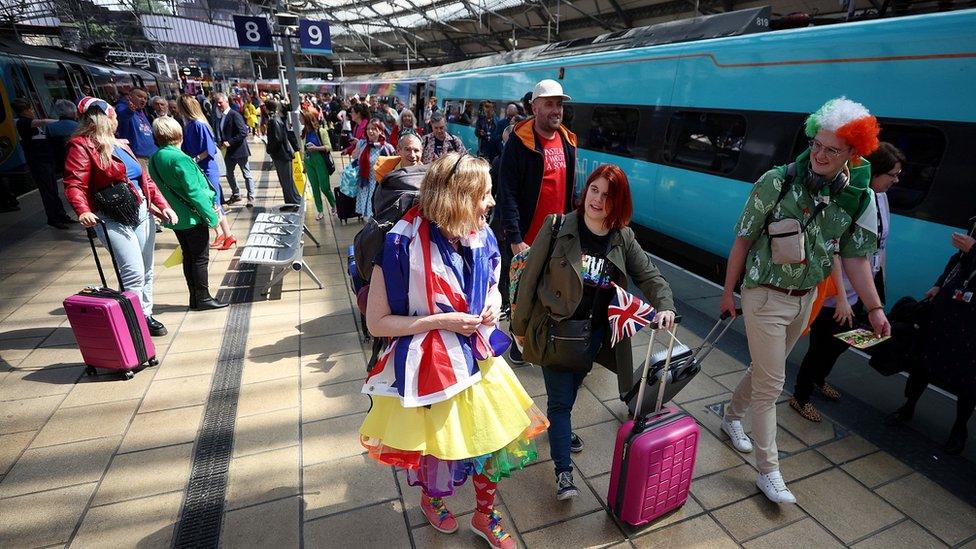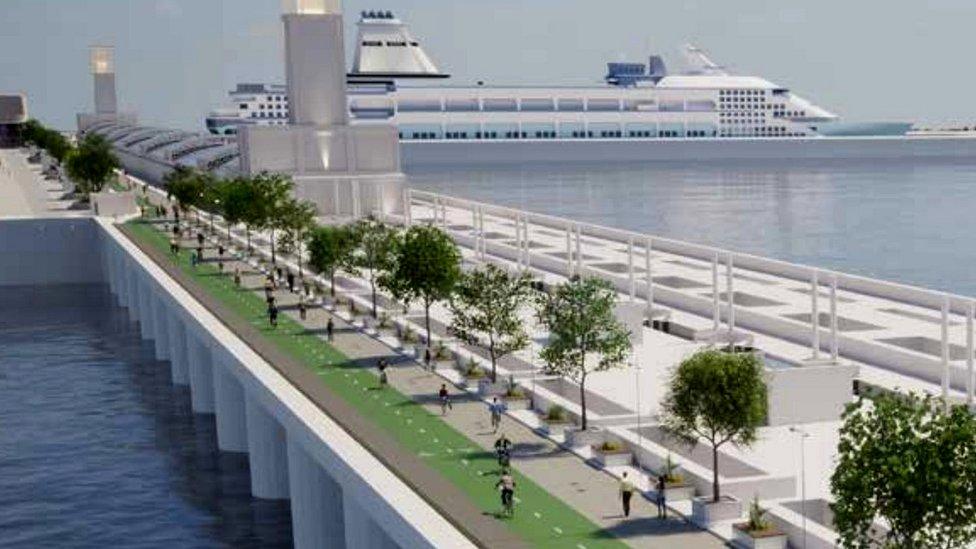Liverpool City Region mayoral election: Who is standing, who can vote and when is it?
- Published
The next mayor of Liverpool City Region will be elected in spring 2024.
People living in six council areas - Liverpool, Wirral, St Helens, Knowsley, Sefton and Halton - will vote on 2 May.
The post was created in 2017 in a deal to give more power to local communities.
The metro mayor also acts as a figurehead for the city region and is supposed to have close lines of communication with central government.
In Liverpool City Region, the mayor's main power is over transport.
Who can vote in the election?
About 1.6 million people live in the six council areas of Liverpool City Region.
If you are registered to vote and live in one of these council areas, you will be able to participate in the election.
These council areas form a wider body called the Liverpool City Region Combined Authority - the organisation created to take on extra funding and powers from central government.
The mayor is effectively the publicly-elected chair of this group. The other members are the leaders of the six councils.
What powers does the mayor have?

Transport is a key responsibility for the mayor
The mayor of Liverpool City Region oversees decisions and budgets in relation to:
Transport
16+ education and skills
Infrastructure investment
Some regeneration, planning + strategic housing powers
Employment support
Energy and environment
Culture
Who is standing to become mayor?
In alphabetical order by surname:
Liverpool councillor Tom Crone is standing for the Green Party.
Jade Marsden, who came second in the mayoral election in 2021, is standing for a second time for the Conservatives.
Liverpool councillor Rob McAllister-Bell is standing for the Liberal Democrats.
Steve Rotheram will seek a third term as mayor for the Labour Party. He became the area's first metro mayor in 2017.
Ian Smith from Sefton is standing as an Independent.
The deadline for nominations was 16:00 BST on 5 April.
What could be some of the issues affecting how people vote?
Transport is the most tangible part of the mayor's power portfolio - how people travel across the region.
Is it good value for money? Does it get them where they want to be quickly, efficiently and safely?
There are also big infrastructure projects which evoke strong feelings - a tidal barrage to harness the power of the River Mersey and the regeneration of the former Littlewoods building into a film studio.

An artist's impression of how the planned Mersey Barrage could look
There are also plans for a freeport - a special area where different economic regulations apply, attracting investment and creating high quality jobs but also bringing concern about tax evasion and environmental impact.
When will we find out who has won?
The election will take place on 2 May, but the count will not start until a couple of days later, meaning we will not find out who has won until about 16:00 BST on Saturday 4 May.
In addition, the mayoral election will be a little different this time.
Previous ones used the supplementary vote system, where voters could pick a first and second choice of candidate.
In 2024, the election will use the "first past the post" system people are used to seeing in council and general elections.
It simply means the person with the most votes at the end of the count wins.

Why not follow BBC Merseyside on Facebook, external, X, external and Instagram, external? You can also send story ideas to northwest.newsonline@bbc.co.uk, external